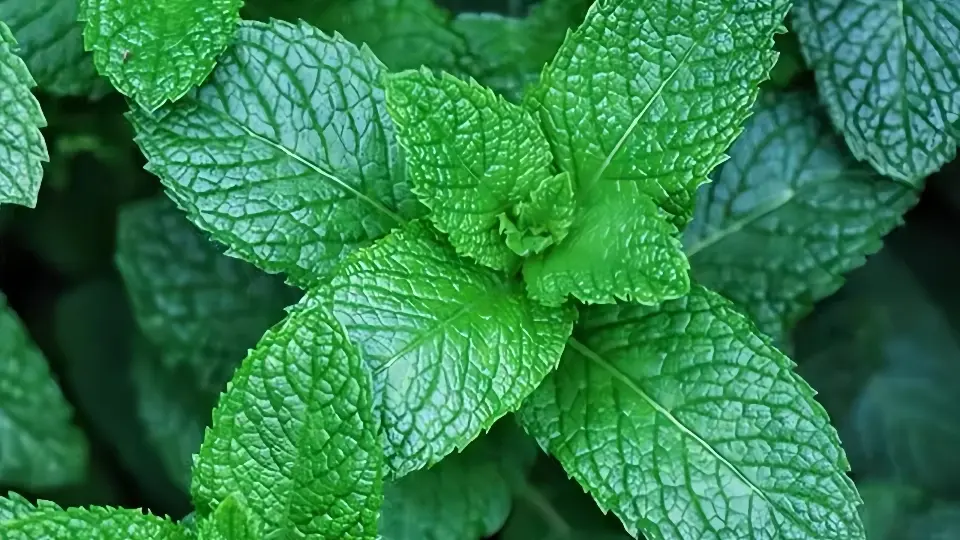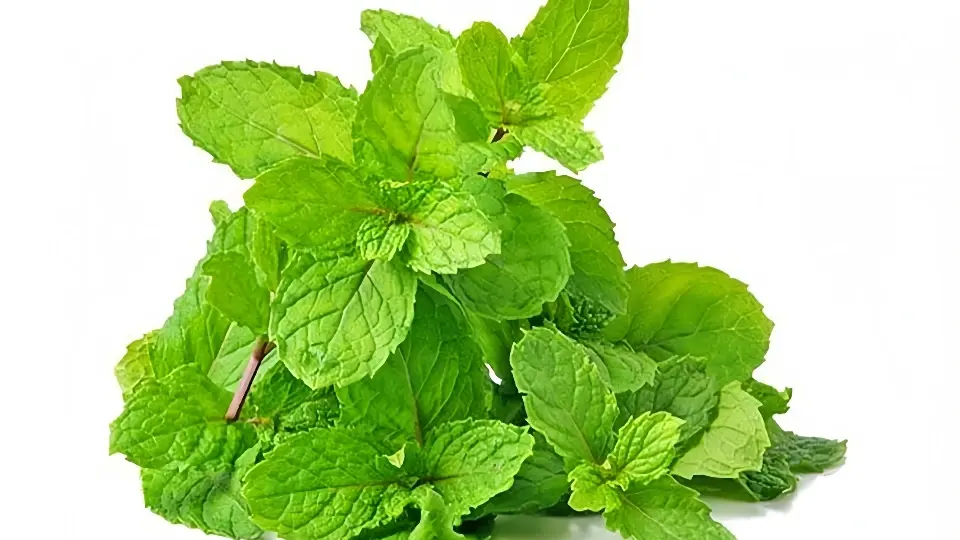Is Peppermint Tea Helpful for Pcos? How to Distinguish Peppermint from Spearmint
A Scientific Deep Dive into Which Mint is Best for You
When you search for natural remedies to ease your PCOS symptoms, "mint tea" often appears at the top of the list. But did you know that the "mint" family is a vast one, with two of its most popular members—peppermint and spearmint—having vastly different effects on your body? Though they sound similar, choosing the right one is crucial for effective PCOS management. This article will clear up the confusion, exploring the key difference between peppermint and spearmint tea and explaining why one is a clear winner for hormone health. For a broader guide on other beneficial herbal teas, see our PCOS Tea Guide.

Table of Contents
Peppermint vs. Spearmint: The Essential Differences
Despite their shared family name, peppermint (Mentha piperita) and spearmint (Mentha spicata) are distinct plants with different chemical compositions, which in turn, affect their health benefits and uses.
Visual Appearance
Peppermint leaves are often darker green with pointed, serrated edges. Spearmint leaves, in contrast, are a brighter, more vibrant green and have a smoother, somewhat crinkled texture. When brewed, both teas produce a light, golden-brown liquid.

Flavor and Aroma Profile
This is where the most noticeable difference lies. Peppermint's characteristic strong, cooling sensation comes from its high concentration of menthol. This is the same compound found in mint-flavored gum and candies. Spearmint, on the other hand, contains very little menthol. Its flavor is much sweeter, milder, and less overpowering, thanks to its primary active compound, carvone. For those who find peppermint too strong, spearmint offers a gentler, more delicate experience.

Scientific Evidence: Why Spearmint is the PCOS Star
While both teas offer general health benefits like supporting digestion, only spearmint has been specifically studied for its anti-androgen effects in women with PCOS. The key lies in its carvone content, which has been shown to inhibit enzymes that are involved in the production of male hormones (androgens).
Multiple scientific studies, including a randomized controlled trial published in the Phytotherapy Research journal in 2008, have demonstrated the positive impact of spearmint tea on PCOS patients. This research found that drinking spearmint tea daily significantly lowered free testosterone levels in the blood, which is a key factor in symptoms like hirsutism (excess hair growth) and hormonal acne. Peppermint tea, lacking this specific chemical makeup, does not have the same hormonal-balancing effect.
This distinction is critical. If your goal is to manage high androgen levels and their related symptoms, spearmint tea is the proven choice, not peppermint. Understanding this difference helps you make informed decisions and focus on effective solutions instead of wasting time on remedies that may not address the root cause. For more on how other teas help manage symptoms, see our detailed guide: Is Green Tea Good for PCOS? Explore More Professional Herbal Tea Options.
Precision in Our Blend: The Laicuherb PCOS Tea Difference
At Laicuherb, we approach health with a foundation in both traditional wisdom and modern science. This is why our PCOS Tea is not just a blend of herbs, but a carefully formulated recipe. We specifically chose **spearmint**—not peppermint—as a core ingredient to provide targeted, evidence-based support for managing androgen levels. Our commitment to using the right ingredients for the right purpose ensures our tea works effectively, complementing other powerful herbs like Cinnamon, Ginger, and Nettle Leaf for a synergistic effect.
We believe our teas are more than just beverages—they are "state teas"—designed to support your unique physiological state. We are not a cure, but a companion on your wellness journey, providing a tea for every state of being. Not Just Tea: How the Unique Formula of Laicuherb PCOS Tea Supports Your Health
Understanding the difference between these two mints is the first step toward effective symptom management. By making the right choice, you empower yourself with a simple, daily ritual that brings you closer to hormonal balance. So, the next time you reach for a cup, make it spearmint. Your body will thank you.
FAQ
Q: Which mint is not edible?
A: Peppermint and Spearmint are both edible, but Pennyroyal (mint leaves) is a type of mint that is highly toxic because it contains toxic compounds.
Q: Is peppermint healthier than spearmint?
A: There is no better way to describe them - they are just different in their respective applications. Like Spearmint, it is relatively mild and has many benefits for PCOS. Peppermint is generally used to promote digestion, among other things.
Q: Is spearmint or peppermint better for anxiety?
A: The refreshing scent of peppermint is invigorating, while spearmint has a soothing effect and is highly suitable for relieving anxiety. Both can have a calming effect on your nervous system.
Scientific References & Further Reading
- 1. Grant, P. (2010). "Spearmint herbal tea has significant anti-androgen effects in polycystic ovarian syndrome. A randomized controlled trial."
- 2. Akdogan, M., et al. (2007). "Effect of spearmint (Mentha spicata Labiatae) teas on androgen levels in women with hirsutism."
- 3. Snoek, D. H., et al. (2019). "The effects of peppermint tea on digestion and its potential side effects."
- 4. Healthline. "Spearmint Tea for PCOS."
- 5. WebMD. "Peppermint and Spearmint: What's the Difference?"
About the Author

The core content team at Laicuherb is a collective of experts, including health professionals, consultants in Traditional Chinese Medicine, and experienced content strategists. Some articles are authored by our brand's founders or R&D scientists. Our team has deep expertise in herbal health, integrating the wisdom of traditional medicine, modern nutrition, and women's health research to transform ancient wellness principles into practical, accessible content for everyday life.







